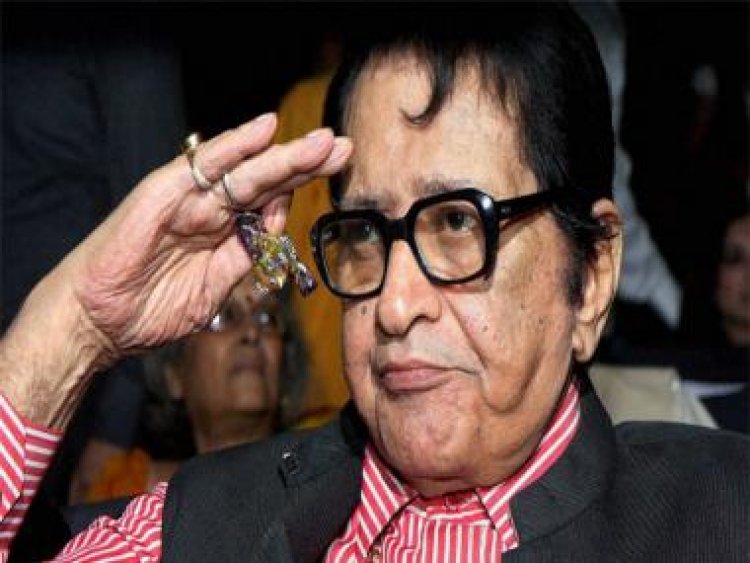Celebrating the spirit of Independence, Manoj Kumar style
Celebrating the spirit of Independence, Manoj Kumar style

Farah Khan, a filmmaker of dubious distinction, had once called me the 'Manoj Kumar Of Film Journalism'. She meant it as an insult. I took it as one of the greatest compliments of my career. Farah Khan, who has given the world such priceless paeans to pedestrianism as Happy New Year and Tees Maar Khan, had lampooned Manoj Kumar in her 2007 Madhumati rip-off Om Shanti Om .
Manoj Kumar, an actor-filmmaker has given us such timeless odes to nationalism as Upkar, Purab Aur Paschim and the classic of his oeuvre Shor, an exquisite indictment of noise pollution long before Farah and her fraternity made noise fashionable in our films.
Manoj Kumar has not forgotten the insult. “Some scars remain. Some wounds never heal. When your hard work of fifty years is mocked and people make a joke of you and your work, then I think somewhere our generation has failed as artistes and as parents. If children do not value your work, you are a failure.”
Shatrughan Sinha, who worked with Manoj Kumar in the 1981 blockbuster Kranti, calls him the master of nationalism. “Bharat, the hero Manoj Kumar played in his films, became a symbol of hope for every young Indian. In Roti Kapada Aur Makaan, he addressed unemployment. In Purab Aur Paschim, he spoke of the brain-drain. The song Mehngai maar gayi in the former and Hai preet jahan ki reet sadaa in the latter encapsulates the Manoj Kumar brand of nationalism. Unlike today’s pseudo-patriots, Manoj Kumar is a true patriot. I salute him this Independence Day as the symbol of nationalism in our divided film industry.”
Sanjay Leela Bhansali designates himself an ardent fan of Manoj Kumar’s cinema. “Manoj Saab is a textbook of filmmaking. The passion with which he shot his films is visible in every frame of his cinema. I learnt to give my hundred percent to every shot from Manoj Kumar. His love for his country is genuine. Manoj Kumar is a true-blue patriot. I’ve lost count of how many times I’ve seen Upkar, Purab Aur Paschim and Roti Kapada Aur Makaan.”
Manoj Kumar’s cinema about the love of his country began with Upkar in 1967.The writer-actor-director ’s passionate paean to patriotism sailed to salient summits of human reform on the strength of Lal Bahadur Shastri’s slogan 'Jai Jawaan Jai Kissan.' Manoj Kumar played Bharat, who was both a farmer and soldier in the film. This masterpiece influenced hordes of youngsters to respect the farmer’s vocation and to join the army.
Then came Purab Aur Paschim in 1970. “Bharat ka rehne wala hoon Bharat ki baat sunata hoon,” sang Manoj in his favourite voice of Mahendra Kapoor. In the film, Manoj Kumar goes to London to teach the Gora Log a lesson or two on Bhartiya Sabhyata. This wonderfully jingoistic film holds together surprisingly well even after all these years. Saira Banu, in the miniest of minis, played a confused desi girl whose blond hair made no sense. But the film did. Manoj Kumar’s patriotism rings true even today.
Roti Kapada Aur Makaan in 1974 was born out of Manoj Kumar’s childhood memories. When he was in class 8, a senior student named Dewan at a school function chanted, ‘Maang raha hai Hindustan roti kapada aur makaan.’ That’s where the idea came to Manoj. Roti Kapada Aur Makaan is more relevant today than ever before. The film was inspired by a report in a newspaper in 1972. A young graduate tore up his degree in front of the vice-chancellor as soon as it was given to him. This incident set Manoj Kumar thinking about degrees and jobs.
Manoj Kumar never intended to be a director in the first place. He became one by default when during the shooting Shaheed in 1964 Manoj had to direct the film unofficially. Then Lal Bahadur Shastri raised the slogan of Jai Jawan Jai Kisan. That’s how he made Upkar. The rest is not just history, but also hysteria at the box-office.
Says Manoj, “I give credit for my success to my parents. My father was a poet philosopher. I came to Mumbai with two targets .One was to be a hero, the other was to make 3 lakh rupees,1 lakh each for my two parents and 1 lakh for my siblings. When I had left home in Delhi in 1956 to come to Mumbai to become a hero my father gave me a letter . In that letter, he said, ‘My blood can never commit blunders, only mistakes’. I made mistakes in my career. But not blunders.”
The blunderers and plunderers of our film industry came later. Proposal makers posing as filmmakers who have brought Indian cinema to its current crisis and shame.
Subhash K Jha is a Patna-based film critic who has been writing about Bollywood for long enough to know the industry inside out. He tweets at @SubhashK_Jha.
Read all the Latest News, Trending News, Cricket News, Bollywood News, India News and Entertainment News here. Follow us on Facebook, Twitter and Instagram.
What's Your Reaction?


























































